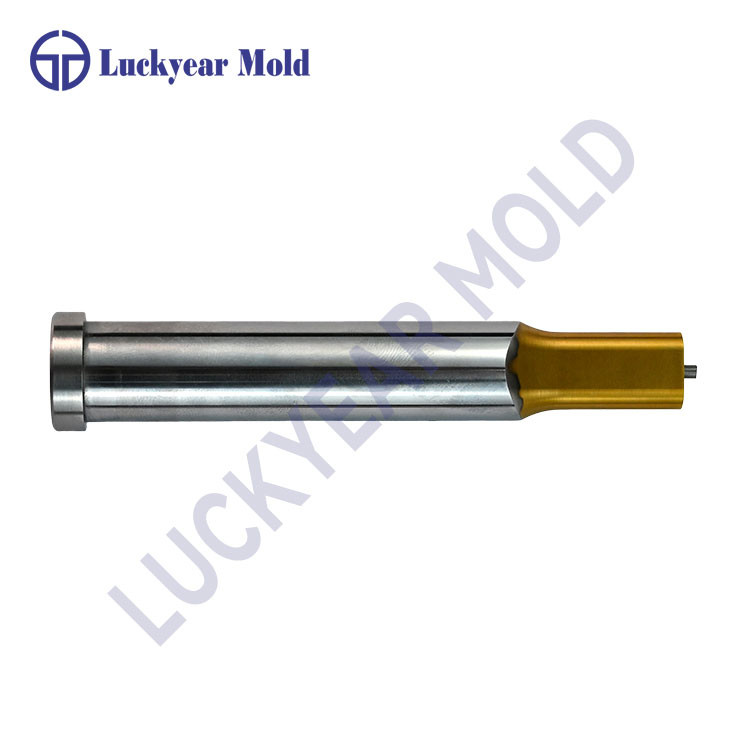What Makes a Standard Mold Punch Essential for Precision Manufacturing?
2025-02-19
In the world of precision manufacturing, every component plays a critical role in achieving accurate results and ensuring the smooth functioning of industrial processes. Among these components, the standard mold punch stands out as an indispensable tool in mold-making and metal-forming applications. But what exactly is a standard mold punch, and why is it so essential for precision manufacturing?
What Is a Standard Mold Punch?
A standard mold punch is a highly durable and precisely crafted tool used in various molding and stamping processes. It is typically made from hardened steel or other robust materials designed to withstand high-pressure operations. Mold punches are essential for shaping, cutting, or punching materials like metal, plastic, and composites, ensuring consistent and repeatable results.
The term "standard" refers to the fact that these punches are manufactured according to industry standards, which means they are compatible with a wide range of mold and die setups. Their versatility makes them a go-to solution for manufacturers across industries such as automotive, aerospace, electronics, and consumer goods.
How Does a Standard Mold Punch Work?
In simple terms, a mold punch works by applying force to a material to shape, cut, or form it into a desired design. This process is often part of a larger system, such as a mold or die, where the punch interacts with a corresponding die cavity to produce the final product.
During operation, the punch is aligned precisely within the mold setup. When force is applied—either manually or through a machine—the punch presses into the material, achieving the desired cut or form. Its precision and durability ensure that the process can be repeated multiple times without compromising accuracy or quality.
Why Is a Standard Mold Punch Essential?
1. Precision and Consistency
In manufacturing, precision is everything. A standard mold punch ensures that every part produced meets exact specifications, reducing errors and material wastage.
2. Durability for High-Volume Production
Mold punches are built to withstand extreme stress and wear, making them ideal for high-volume production environments. Their ability to endure repetitive operations ensures cost-efficiency and long-term reliability.
3. Versatility Across Applications
Standard mold punches are suitable for a variety of tasks, from creating intricate designs in sheet metal to punching holes in plastic components. This versatility makes them an essential tool for diverse industries.
4. Compatibility with Standard Systems
Since they are manufactured to industry standards, these punches can be easily integrated into existing molds and dies, saving time and reducing customization costs.
5. Enhanced Productivity
By streamlining the punching or forming process, standard mold punches contribute to faster production cycles, enabling manufacturers to meet tight deadlines without compromising quality.
Where Are Standard Mold Punches Used?
Standard mold punches are widely used across industries that require precise shaping or cutting of materials, including:
- Automotive Manufacturing: For creating engine parts, body panels, and brackets.
- Aerospace: For producing high-precision components used in aircraft.
- Electronics: For shaping metal parts in circuit boards and connectors.
- Consumer Goods: For creating components used in household appliances, tools, and gadgets.
How to Choose the Right Standard Mold Punch?
When selecting a standard mold punch, several factors need to be considered:
- Material Compatibility: Ensure the punch material is suitable for the type of material being processed.
- Dimensional Accuracy: Look for punches that meet your specific size and tolerance requirements.
- Coating and Surface Treatment: Coated punches offer enhanced durability and resistance to wear.
- Manufacturer Reputation: Choosing a trusted manufacturer ensures quality and compliance with industry standards.
Final Thoughts
The standard mold punch is more than just a tool—it is a cornerstone of precision manufacturing. Its ability to deliver consistent, accurate, and durable performance makes it indispensable for industries that rely on high-quality production.



